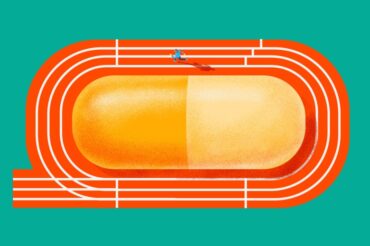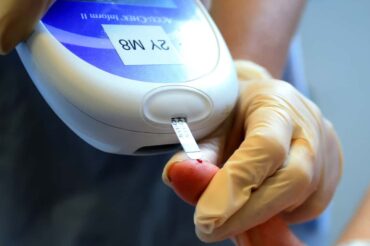WHO launches health review after microplastics found in 90% of bottled water
(Graham Readfearn/ The Guardian) —The World Health Organisation (WHO) has announced a review into the potential risks of plastic in drinking water after a new analysis of some of the world’s most popular bottled water brands found that more than 90% contained tiny pieces of plastic. A previous study also found high levels of microplastics …
How much of our empathy is down to genes?
(Ana Sandoiu/ Medical News Today) — When you’re going through a tough time, some people seem to know almost instinctively what you need, while others, although well-intended, may not be able to offer the emotional support you’re hoping for. Is this because the ability to empathize is innate, or down to our …
Exercise as effective as antidepressants for many cases of depression
(Scott Douglas/ Slate) — Here’s the most important thing I learned while writing a book on running and mental health: In clinical studies, regular aerobic exercise is as effective as antidepressants in reducing symptoms of mild to moderate depression.
And that’s not just because moving might help you get into shape and feel better …
Hundreds of doctors in Canada are protesting. They say they make too much
(Doug Criss and Carma Hassan/ CNN) — What would you do if you and your coworkers were getting raises totaling $700 million? If you’re like a group of doctors in Canada, you’d fight it.
Some general practitioners and medical specialists in Quebec have signed a petition saying they don’t want the hundreds of millions …
It’s time to kick the door wide open on equity for women’s health
(Genesa Greening/ HuffPost Canada) — Today is International Women’s Day, and as I consider the seismic shifts that have occurred of late in the realms of business, arts and politics, I’m buoyed by the belief that women’s voices are finally being heard, inequity is being called out and change is coming. Once …
Selfies distort face’s appearance, plastic surgeons warn
(Thomson Reuters) — Selfies — or self-photographs — can distort the face and make the nose look larger than it is, according to plastic surgeons who say they’ve seen an uptick in requests for cosmetic procedures from people who want to look better in selfies.
“Patients under age 40 take out their phones and tell me they …
Tats off: targeting the immune system may lead to better tattoo removal
(Mo Costandi/ Scientific American) — People who are thinking about getting inked are often told, “a tattoo is for life.” Etched into the layer of skin just below the epidermis, they are notoriously difficult to remove. And the laser surgery method for doing so is costly, time-consuming and—often—has far from perfect results. …
How bilingualism may protect against Alzheimer’s
(Ana Sandoiu/ Medical News Today) — New research published in the journal Neuropsychologia reveals that bilingualism makes changes in brain structure that are linked with resilience against Alzheimer’s disease and mild cognitive impairment.
More and more research has been pointing to bilingualism as a viable means …
Five categories for adult diabetes, not just type 1 and type 2, study shows
(Nicola Davis/ The Guardian) — Diabetes that begins in adulthood falls into five distinct categories, new research has revealed, with scientists suggesting it is time to ditch the idea that diabetes is largely split into two types.
Researchers say all of the newly classified subgroups are genetically distinct and have numerous …








